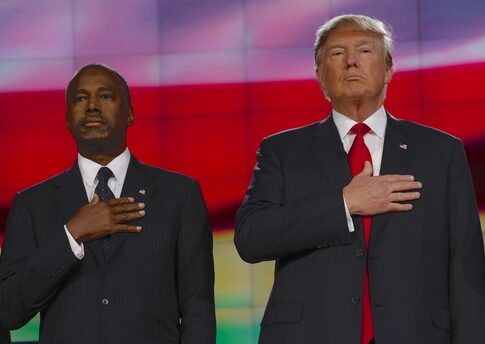In a sermon that has ignited a firestorm of controversy, Atlanta megachurch pastor Jamal Bryant referred to Black Trump supporters as “coons” and “runaway slaves.” His statements reflect broader tensions about expectations of political loyalty within the African American community. Does Bryant’s use of derogatory language undermine his DEI advocacy work?
Pastor’s Controversial Statements and Background
Jamal Bryant, pastor of New Birth Missionary Baptist Church in Atlanta, has thrust himself into national headlines after referring to Black Trump supporters as “coons” and “runaway slaves” during a sermon. “I feel bad for them coons in the White House who are in there tap-dancing for master, wearing bow-tie, shinnin’ and grinding, laughing like nothing is funny,” Bryant stated to his congregation, who responded with apparent approval and enthusiasm.
The pastor has established himself as a prominent voice in promoting Diversity, Equity, and Inclusion initiatives throughout his career. Bryant recently called for a 40-day “fast” from Target after the company announced a reduction in DEI programs, stating: “I want the stock to go down because we are standing in righteous indignation against racism and sexism in this nation.”
🔥🚨BREAKING: Atlanta Democrat mega pastor Jamal Bryant is under backlash for calling Black Trump supporters at the White House coons and runaway slaves. Bro mad he wasn’t invited and we all were laughing at him. pic.twitter.com/qpXxkfY9Uy
— Dom Lucre | Breaker of Narratives (@dom_lucre) February 24, 2025
Connections to Controversial Figures
Bryant’s controversial stance extends beyond his recent comments about Black Trump supporters to his associations with divisive figures in the political landscape. He maintains close ties with Louis Farrakhan, the leader of the Nation of Islam, who has been widely criticized for antisemitic and homophobic rhetoric.
In 2015, Bryant interviewed Farrakhan for the Word Network, introducing him with the words, “We welcome to the Word Network and the entire world, the honorable Minister Louis Farrakhan! We’re honored to have you, sir.” This relationship has raised questions about Bryant’s ideological positions and the influences that shape his public messaging.
WATCH🚨: Atlanta mega pastor Jamal Bryant delivers an anti-MAGA rant, stating that God will remove Republicans from government agencies if people praise Him.
This is why many have lost faith in the church.. pic.twitter.com/Ny9nIjFiyH
— Officer Lew (@officer_Lew) February 15, 2025
Broader Implications for Political Discourse
The controversy surrounding Bryant’s sermon highlights the complex dynamics at play when discussing political diversity within minority communities. His characterization of Black Trump supporters reflects a perspective shared by some who view political conservatism among African Americans as contrary to group interests and historical allegiances.
Critics argue that such rhetoric stifles political diversity and reinforces ideological conformity within the Black community. The incident raises important questions about whether religious leaders should use their platforms to advance partisan political viewpoints and the potential consequences of employing divisive language in both religious contexts and broader societal conversations.


